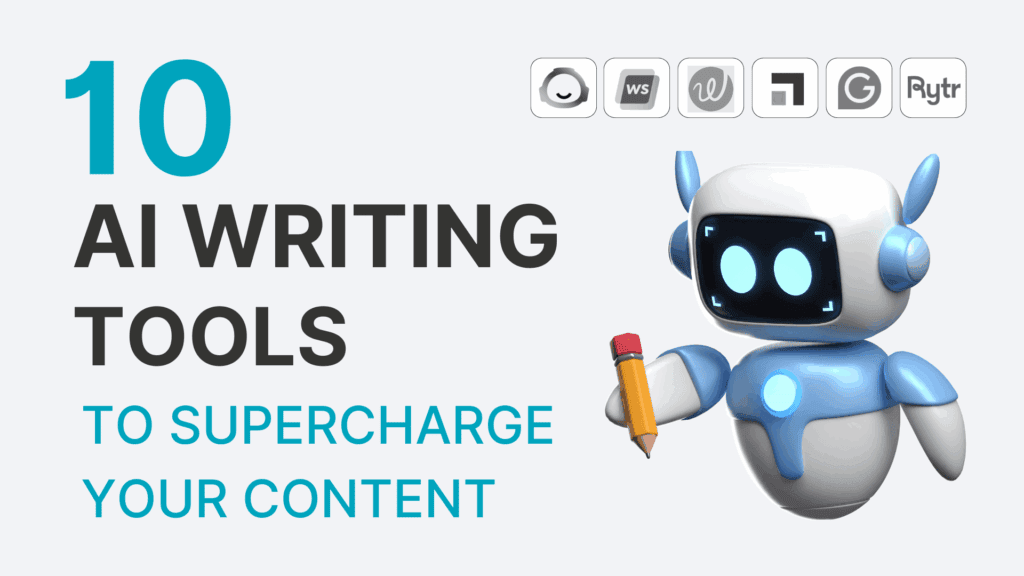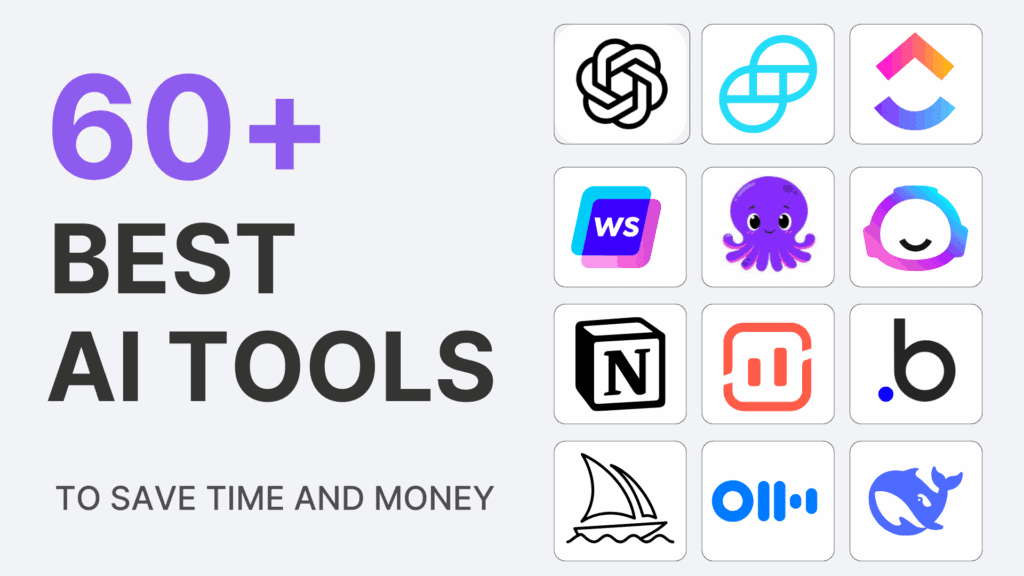Welcome to our blog, where we are going to dive into the exciting world of affiliate marketing and guide you on how to start your journey in 2026. Affiliate marketing has emerged as a lucrative opportunity for individuals seeking to earn passive income and build a successful online business. With the increasing popularity of e-commerce and the digital landscape constantly evolving, there has never been a better time to get involved in affiliate marketing.
In this comprehensive guide, we will provide you with all the essential steps, strategies, and insights you need to embark on your affiliate marketing adventure. Whether you’re a complete beginner or someone with some experience, this blog is designed to equip you with the knowledge and tools necessary to thrive in the competitive affiliate marketing landscape of 2026.
We will explore the fundamentals of affiliate marketing, from understanding what it is and how it works, to selecting the right niche and products to promote. We will delve into effective marketing strategies, such as content creation, search engine optimization (SEO), social media marketing, and email marketing, that will help you attract and engage your target audience.
Furthermore, we’ll discuss the importance of building strong relationships with affiliate networks and merchants, as well as how to leverage analytics and data to optimize your campaigns and maximize your earnings. We’ll also address common challenges and provide practical tips to overcome them, ensuring that you stay on the path to success.
So, if you’re ready to take the plunge into the world of affiliate marketing, let’s get started! Grab a pen and paper, bookmark this page, and get ready to unlock the potential of affiliate marketing as we guide you step-by-step toward building a profitable online business. Let’s make 2026 the year you turn your dreams of financial freedom into a reality with affiliate marketing!
What Is Affiliate Marketing?
Affiliate Marketing is a performance-based marketing model where affiliates promote products or services and earn a commission for each successful referral or sale.
Affiliate marketing is a popular online marketing strategy where individuals, called affiliates, promote products or services of other companies and earn a commission for each sale or action they generate.
It works like this: affiliates promote the products through their own websites, social media, or other online channels, and when someone makes a purchase or completes a desired action using the affiliate’s unique tracking link, the affiliate earns a commission.
The great thing about affiliate marketing is that it’s a win-win situation. You get to make money by sharing products or services you genuinely like, and the companies you promote get more customers and sales. It’s like being an independent marketer, where you have the freedom to choose what to promote and how to promote it. Plus, you can do it from anywhere with an internet connection, which means you have the flexibility to work on your own terms. It’s a fantastic opportunity to turn your passion and online presence into a source of income
Affiliate Marketing Statistics
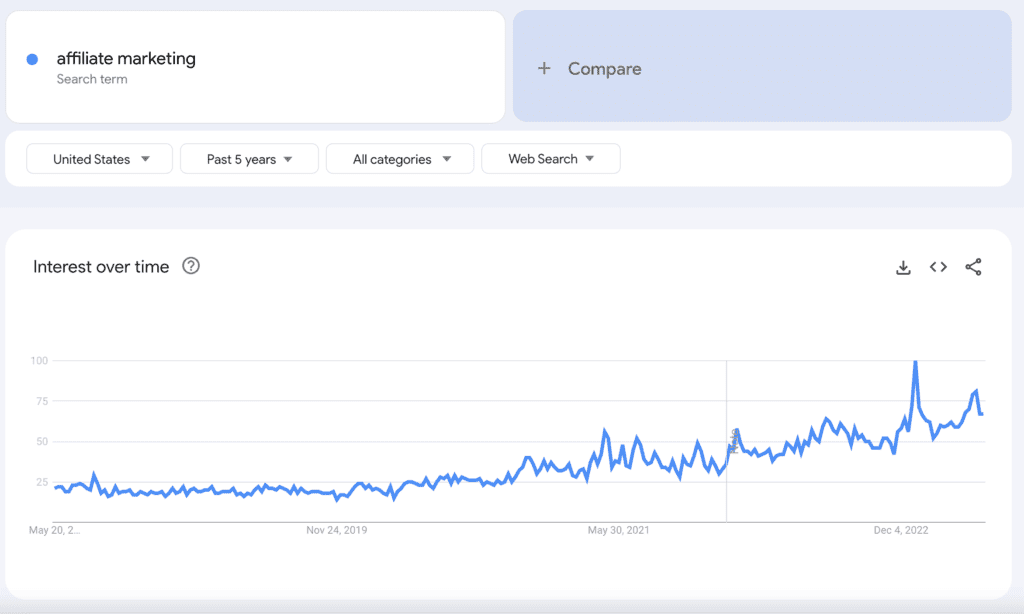
Source Google Search Trends for the query “ Affiliate Marketing” over the last 5 years
- The global affiliate marketing industry is worth over $17 billion
- By 2027 the global affiliate marketing industry is expected to grow to a market size of $28B.
- Affiliate marketing is a top revenue source for 31% of publishers
- 28% of affiliate marketers use blogs to promote affiliate links.
- Affiliate marketing is the most successful channel for 20% of brand marketers
- 56% of affiliate programs increased revenue during the Covid-19 lockdown
- 81.2% of affiliate marketers make more than $20,000 annually
Source Statista, Backlinko, Proficient Market Insights
Affiliate Marketing Ecosystem
The affiliate marketing ecosystem is a dynamic network of different players and components working together to facilitate and drive the success of affiliate marketing programs. Let’s break it down:
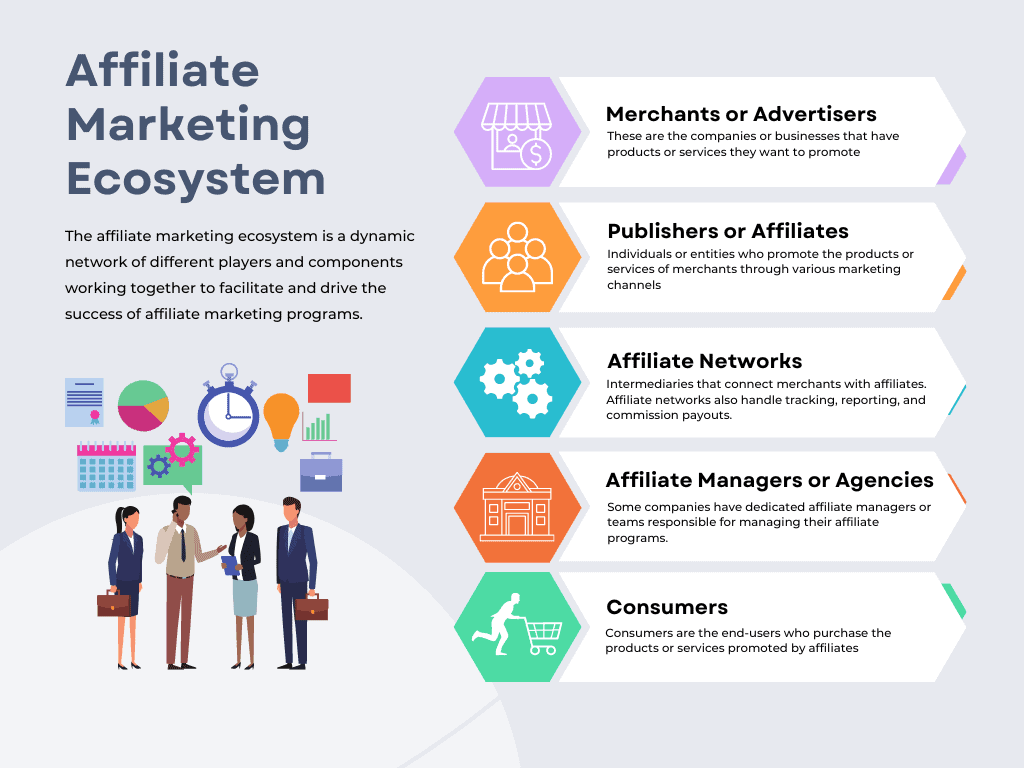
Source TheGoodStrategy.com
- Merchants or Advertisers: These are the companies or businesses that have products or services they want to promote. They join affiliate marketing programs to leverage the marketing efforts of affiliates and expand their customer base.
- Affiliates or Publishers: Affiliates are individuals or entities who promote the products or services of merchants through various marketing channels. They can be bloggers, website owners, social media influencers, or content creators. Affiliates earn a commission for each successful sale or action they generate through their marketing efforts.
- Affiliate Networks: Affiliate networks act as intermediaries connecting merchants with affiliates. They provide a platform where merchants can list their affiliate programs, and affiliates can find and join those programs. Affiliate networks also handle tracking, reporting, and commission payouts.
- Consumers: Consumers are the end-users who purchase the products or services promoted by affiliates. They may come across affiliate links while researching or browsing online. When they make a purchase through an affiliate link, they get the desired product or service, and the affiliate earns a commission.
- Affiliate Management (Agencies working on behalf of brands and advertisers): Some companies have dedicated affiliate managers or teams responsible for managing their affiliate programs. They recruit and onboard affiliates, provide support, optimize campaigns, and ensure compliance with program guidelines.
The affiliate marketing ecosystem is all about collaboration.
It’s a way for merchants to reach more customers, for affiliates to earn money doing what they love, and for consumers to discover amazing products and services through trusted recommendations. It’s like a big happy family working together to make the affiliate marketing world go round!
Affiliate Marketing Approaches
It is essential to start thinking about the type of affiliate marketers to plan to become or you already are. For each type, the niche selection, product to promote, expertise, and authority in the field will vary.
- Unattached Affiliate Marketing: This refers to a more hands-off approach where affiliates promote products or services through their referral links without actively engaging with the audience. They may rely on methods like display ads, banner ads, or social media promotions to generate sales. The focus is primarily on driving traffic and conversions, rather than building or engaging a relationship with your audience.
- Related Affiliate Marketing, on the other hand, is about promoting products that are closely related to your niche or area of expertise. You leverage your knowledge and credibility to endorse products that align with your audience’s interests. This approach often involves creating high-quality content, such as reviews, tutorials, or recommendations, to build trust with the audience and drive conversions.
- Involved Affiliate Marketing: Also known as influencer affiliate marketing, revolves around personal involvement and engagement with the audience. Affiliates who follow this strategy establish themselves as trusted experts or authorities in a specific industry or niche. You actively engage with your audience through various channels like social media, email newsletters, live events, or webinars. By building relationships and providing valuable content, you promote products or services and earn commissions through their referral links.
What approach feels more like you?
Affiliate Marketing Examples
Here are examples to illustrate how affiliate marketing is integrated into various online platforms. Content creators, bloggers, influencers, and niche websites leverage their expertise and recommendations to provide valuable information to their audience while earning commissions through affiliate links.
The key to becoming a successful affiliate marketer is to provide valuable content, build trust with your audience, and strategically incorporate affiliate links to generate income through commission.
YouTuber Reviews: Imagine you’re watching a YouTube video where a content creator reviews a new video game. They talk about the gameplay, graphics, and their personal experience. In the video description or during the video, they mention that if you’re interested in buying the game, you can find it on a specific website and provide an affiliate link. If you click the link and purchase the game, the YouTuber earns a commission.
Fashion Blogger Recommendations: Picture yourself reading a fashion blog post about the latest trends for summer. The blogger showcases different outfits, accessories, and beauty products. Throughout the post, they include affiliate links to the online stores where you can buy those items. If you click the links and make a purchase, the blogger earns a commission while you get to shop the featured styles.
Instagram Influencer Collaborations: Let’s say you follow a fitness influencer on Instagram who frequently posts workout routines, healthy recipes, and fitness tips. Every now and then, they partner with a sports nutrition brand and share a post or story promoting their products. They include a special discount code that you can use when making a purchase on the brand’s website. If you use the code, the influencer earns a commission from your purchase.
Travel Blogger Affiliate Links: Imagine you’re reading a travel blog post about a recent trip to a stunning destination. The blogger shares their itinerary, hotel recommendations, and local experiences. Within the post, they include affiliate links to booking platforms or specific hotels mentioned. If you click the links and book your accommodation through them, the blogger earns a commission while you secure a place to stay for your trip. If you are interested in travel blogging, check out our blog about how to start a travel blog and money in 2026
Niche Website Product Comparisons: Let’s say you’re searching for the best DSLR camera for beginners. You come across a niche website that specializes in photography gear. They have detailed articles comparing different camera models, their features, and prices. Throughout the articles, they provide affiliate links to online stores where you can purchase the cameras they recommend. If you click the links and make a purchase, the website earns a commission.
How Does Affiliate Marketing Work?
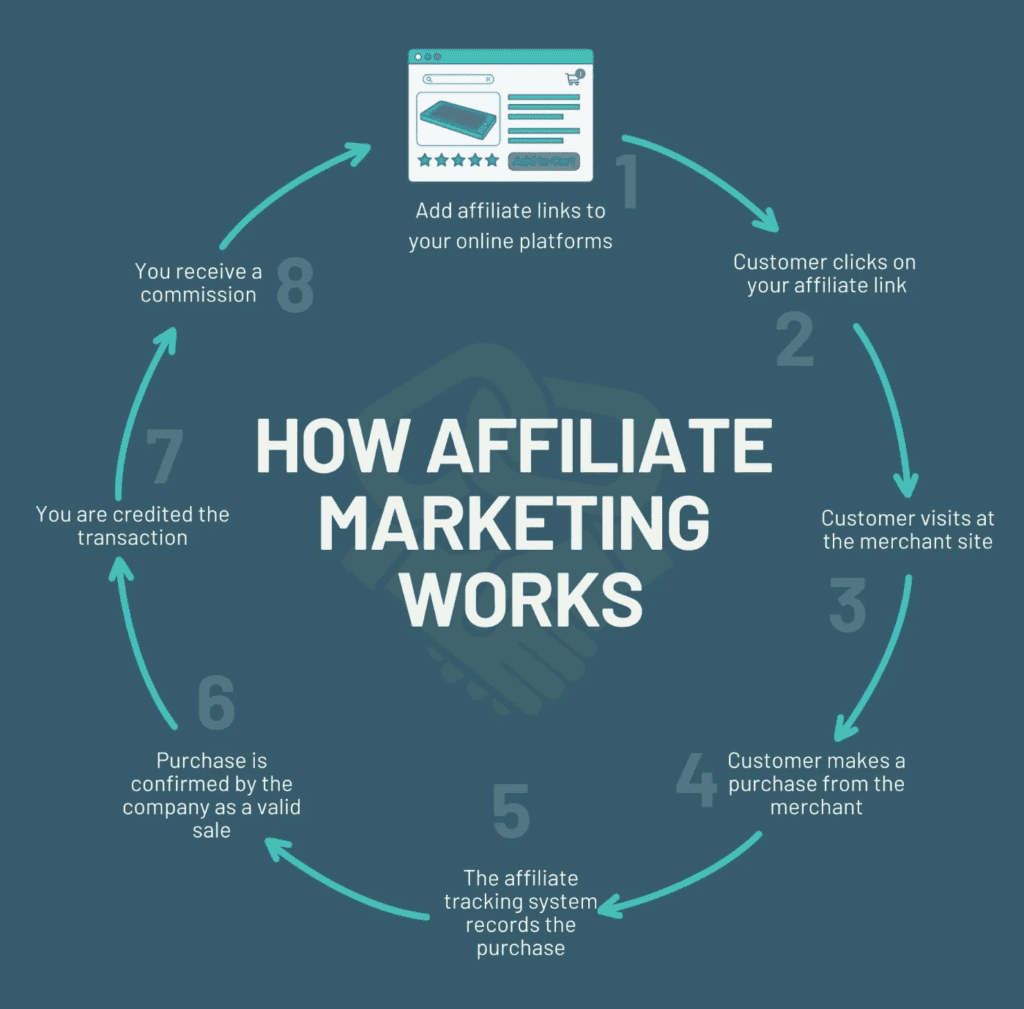
Source ReliableSoft.net
Affiliate marketing works through a simple yet effective process. Here’s how it typically goes:
- Joining an Affiliate Program: As an aspiring affiliate marketer, you start by joining an affiliate program. These programs are offered by companies that have products or services they want to promote. You sign up for the program and get a unique affiliate ID or tracking link.
- Choosing Products to Promote: Once you’re part of an affiliate program, you browse through the available products or services and select the ones that align with your interests, niche, or target audience. It’s essential to choose products you genuinely believe in and think will be valuable to your audience.
- Promoting the Products: With your chosen products in hand, you start promoting them. You create content around the products, such as blog posts, social media posts, videos, or reviews. Within your content, you incorporate your unique affiliate tracking link, which allows the merchant to track the sales or actions that result from your promotion.
- Attracting and Engaging Your Audience: The key to successful affiliate marketing is attracting and engaging your audience. You share your content across various channels, such as your website, social media profiles, email newsletters, or even through paid advertising. Your goal is to capture your audience’s attention, spark their interest, and encourage them to click on your affiliate links to learn more about the promoted products.
- Driving Conversions: When someone clicks on your affiliate link and makes a purchase or completes a desired action on the merchant’s website, it’s called a conversion. The merchant’s tracking system recognizes that the sale or action came from your referral and credits you with a commission. The specific commission structure and rates are determined by the affiliate program you joined.
- Earning Commissions: As conversions happen, you earn commissions. The amount you earn can vary depending on the affiliate program, product type, and commission structure. Commissions can be a percentage of the sale price or a fixed amount per action. Some affiliate programs also offer tiered commission structures, where you earn higher rates as you generate more sales.
- Tracking and Analytics: To keep track of your performance and earnings, you can access reports and analytics provided by the affiliate program or affiliate network. These tools provide unique tracking links or codes that affiliates use in their promotions and show you the number of clicks, conversions, and commissions earned, allowing you to assess the effectiveness of your promotions and make informed decisions to optimize your campaigns.
That’s the basic process of how affiliate marketing works. It’s all about promoting products or services you love, attracting an audience, and earning commissions for the sales or actions generated through your efforts.
With dedication, strategic promotion, and continuous learning, you can become a successful affiliate marketer and generate a reliable income stream.
Affiliate Marketing Glossary
In this glossary, we have compiled a collection of essential terms and definitions to help you build a solid foundation of knowledge. From understanding the different roles within the affiliate marketing ecosystem, such as affiliates, merchants, and networks, to grasping important concepts like conversion rates, click-through rates, and commission structures, we cover it all.
- Affiliate: An individual or entity that promotes products or services of another company and earns a commission for every sale or lead generated through their referral.
- Affiliate Network: An intermediary platform that connects affiliates with merchants or advertisers. It helps facilitate tracking, reporting, and payments for affiliate programs.
- Commission: The amount of money or percentage of the sale price that an affiliate earns for each successful referral or sale.
- Conversion: The desired action taken by a user referred by an affiliate, such as making a purchase, signing up for a service, or filling out a form.
- Cookie: A small file stored on a user’s computer or device that helps track their activity and attribute sales or leads to the correct affiliate.
- EPC (Earnings Per Click): A metric that measures the average amount of money earned by an affiliate for each click they generate on their affiliate links.
- Landing Page: A web page specifically designed to convert visitors into customers or leads. Affiliates often drive traffic to landing pages to promote products or services.
- Merchant: The company or advertiser that offers products or services and engages in an affiliate program to leverage affiliates for promotion and sales.
- Pay Per Click (PPC): An affiliate marketing model where affiliates earn a commission based on the number of clicks their referral generates, regardless of whether a sale is made.
- Pay Per Lead (PPL): An affiliate marketing model where affiliates earn a commission for each lead they refer to a merchant, typically when the lead takes a specific action like filling out a form or signing up for a free trial.
- Pay Per Sale (PPS): An affiliate marketing model where affiliates earn a commission for each sale they generate through their referral.
- Referral Link: A unique URL assigned to an affiliate that contains their affiliate ID. It is used to track traffic and conversions generated by the affiliate.
- Deep Linking: Website visitors are sent when they link the affiliate link, typically a product page or landing page.
- Sub-Affiliate: An affiliate recruited by another affiliate. Sub-affiliates promote products or services through their own referral links and earn a commission, with a portion going to the affiliate who recruited them.
- Tracking Code: A piece of code or script that is placed on a website to track visitor activity and attribute referrals to the correct affiliate.
- Two-Tier Affiliate Program: An affiliate program that allows affiliates to earn commissions not only from their own referrals but also from the referrals made by affiliates they have recruited.
- Vanity Code: A customized tracking code or affiliate ID assigned to an affiliate, often chosen by the affiliate to make it more memorable or relevant to their marketing efforts.
How Do Affiliate Marketers Get Paid?
Understanding the various payment models is essential for maximizing your affiliate earnings. As an affiliate marketer, your primary goal is to promote products or services and drive sales or desired actions. In return, you receive a commission or payment for your successful referrals.
In the chart below, we’ve outlined the most common ways affiliate marketers get paid and the payout structure may vary based on the niche, product, service, or affiliate program you decide to join.
| Commission Payout Model | Description | Example |
|---|---|---|
| Pay Per Sale (PPS) | Affiliates earn a commission for each referred sale. | Example: An affiliate promoting a camera brand earns a 10% commission for every camera sale made through their referral link. |
| Pay Per Lead (PPL) | Affiliates earn a commission for generating qualified leads. | Example: An affiliate promoting a software company earns $5 for each lead who signs up for a free trial of the software through their referral link. |
| Pay Per Click (PPC) | Affiliates earn a commission for each click on their links. | Example: An affiliate promoting a travel website earns $0.25 for every click on their referral link, regardless of whether a sale is made. |
| Recurring Commissions | Affiliates earn ongoing commissions for recurring sales. | Example: An affiliate promoting a subscription box service earns a 15% commission on each monthly subscription fee for as long as the customer remains subscribed. |
| Two-Tier Commissions | Affiliates earn commissions from their referred affiliates. | Example: An affiliate recruits another affiliate to promote an online course. The primary affiliate earns a 10% commission on the sales generated by their recruited affiliate. |
| Performance Bonuses | Affiliates receive additional rewards for achieving goals. | Example: An affiliate marketing fitness brand receives a $500 bonus for reaching a monthly sales target of 100 units. |
| Gift Cards/Store Credit | Affiliates receive non-monetary rewards for their efforts. | Example: An affiliate promoting a clothing brand receives a $100 gift card for every $1,000 worth of sales generated through their referral link. |
Benefits (and disadvantages) of Affiliate Marketing
Affiliate marketing is a popular online marketing strategy that offers both advantages and disadvantages. By understanding its pros and cons, individuals and businesses can make informed decisions about whether to participate in affiliate marketing programs.
Pros
- Passive Income: One of the biggest advantages of affiliate marketing is the potential to earn passive income. Once you set up your affiliate links and promote products, you can continue to earn commissions even when you’re not actively working. It’s like having a 24/7 sales team working for you.
- Low Risk and Cost-effective: Affiliate marketing is a low-risk business model. You don’t need to create your own products or worry about inventory management. The upfront costs are usually minimal, making them accessible to individuals with limited budgets or resources. You can start promoting products or services without breaking the bank.
- Expanded Reach: When you join affiliate programs, you gain access to a wide range of products or services that you can promote to your audience. This allows you to tap into new markets and reach customers who might not have discovered those products otherwise. It’s like having an extended catalog of offerings without the need to create them yourself.
- Performance-Based Model: In affiliate marketing, you are rewarded based on your performance. You only earn a commission when your referral leads to a sale or desired action. This incentivizes you to put in the effort to drive conversions and deliver results. It’s a win-win situation where both you and the merchant benefit from successful transactions.
Cons
- Limited Control: As an affiliate, you have limited control over the actual product or service you are promoting. You rely on the merchant to handle aspects like product quality, customer service, and order fulfillment. If the merchant falls short in any of these areas, it can impact your reputation and credibility.
- Commission Structure and Payment Delays: Different affiliate programs have varying commission structures and payment schedules. Sometimes, you may face delays in receiving your commissions or encounter discrepancies in tracking and reporting. It’s important to thoroughly understand the terms and conditions of each program you join to avoid any unpleasant surprises.
- Competition: Affiliate marketing is a popular and competitive field. There are many affiliates promoting similar products or services to the same audience. This can make it challenging to stand out and capture the attention of potential customers. It requires creativity, strategic marketing, and differentiation to effectively compete in the crowded affiliate space.
How Much Do Affiliate Marketers?
Some well-known affiliate marketers – bloggers, and podcasters – such as Pat Flynn (Smart Passive Income), Michelle Schroeder-Gardner (Making Sense of Cents), or Adam Enfroy (Adam Enfroy), reported regularly making $100,000+ in monthly affiliate revenue.
Other popular media and news outlets such as Wirecutter or Forbes continue to grow millions using the affiliate marketing model to monetize their content. With the rise of Commerce Content in the publishing world, affiliate marketing has proven to be a profitable way to partner with brands and merchants.
Affiliate Marketing is not a get-rich-quick scheme. If you are dedicated to building a profitable business and earning affiliate income, get ready to start low at the start.
Affiliate Marketing Strategies
- Create high-quality content that generates affiliate revenue
Create valuable, informative, and engaging content that resonates with your audience. This can include blog posts, reviews, tutorials, videos, and social media content. Quality content not only attracts and retains visitors but also builds trust and increases the likelihood of conversions.
For example, craft honest and comprehensive reviews of products or services within your niche. Offer insights, highlight benefits, and provide genuine recommendations to help your audience make informed purchasing decisions.
Focus on providing value and establishing yourself as a reliable source of information.
Don’t know where to start with creating content for your affiliate site? Check out our full guide on How to Build an Effective Keyword Strategy for your content.
- Promote your affiliate links
Incorporate your affiliate links naturally within your content. Avoid being overly promotional and ensure that your recommendations are genuine and transparent. Encourage your audience to take action by clearly highlighting the benefits and value of the products or services you’re promoting.
- Build an engaged audience and turn visitors into customers
When you choose a niche that aligns with your interests, expertise, and target audience, this allows you to quickly establish yourself as an authority and tailor your content and promotions accordingly.
Engage with your audience through various channels, such as social media, comment sections, or email marketing. Build an email list and leverage it to promote affiliate products or services. Create compelling newsletters, exclusive offers, and personalized recommendations to nurture your subscribers and drive conversions. For more information on how to choose the best email marketing services for your online business, check out our 26 Best Email Marketing Services.
Compliance and Legal Considerations
Compliance and ethical practices are essential in affiliate marketing. In this section, we’ll explore the legal considerations and guidelines you need to follow to maintain transparency and build trust with your audience.
Disclosure and Transparency in Affiliate Marketing
Transparency is key when promoting affiliate products. We’ll discuss the importance of disclosure and how to disclose your affiliate relationships ethically. You’ll learn about the FTC guidelines and the necessary information to include in your disclosures to ensure compliance.
Complying with FTC Guidelines and Regulations
The Federal Trade Commission (FTC) has established guidelines and regulations for affiliate marketers. We’ll provide a comprehensive overview of the FTC requirements and explain how to comply with them. Understanding and adhering to these regulations will protect your business and reputation.
Protecting Your Intellectual Property
As an affiliate marketer, it’s crucial to safeguard your intellectual property, such as your website content, images, and branding assets. We’ll discuss strategies for protecting your intellectual property, including copyright registration, trademark bidding violations, and enforcing your rights against infringement.
How to Find Affiliate Marketing Programs
There are several ways to find affiliate marketing programs.
- Think about what interests you and what kind of products or services you’d love to promote. This will help you narrow down your search and make it more enjoyable.
- Start by doing some online digging. You can start by researching companies in your niche and checking if they have an affiliate program. Search engines are your best friend here! Look for affiliate networks or directories that compile a wide range of programs. These platforms usually have search filters, so you can refine your results based on your preferences.
- Join social media groups or forums related to your niche. People often share valuable insights and recommendations there. You can also reach out directly to companies you admire and ask if they have an affiliate program. Sometimes, smaller businesses may not be listed in directories, but they might still offer affiliate opportunities.
- Attend industry events and connect with other affiliate marketers. They can share their experiences and even introduce you to new programs. Just remember to choose programs with fair commissions, high-quality products, and good support.
- Join affiliate networks like Amazon Associates, ClickBank, or Commission Junction to discover various programs within their networks.
Best Affiliate Marketing Programs and Networks
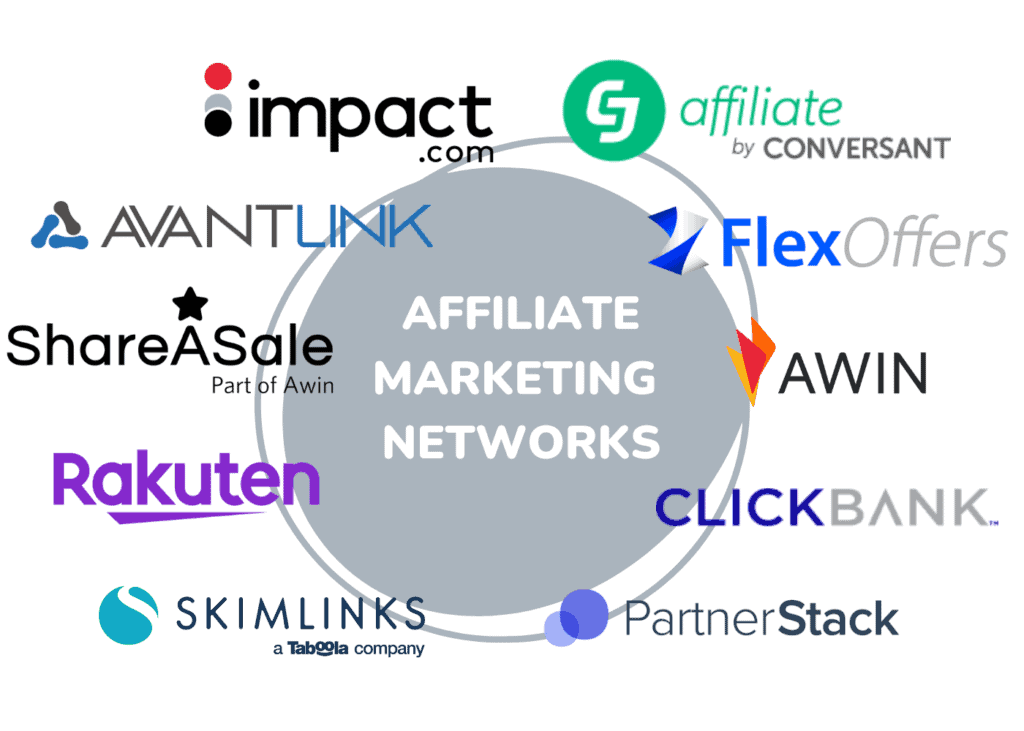
Source thegoodstrategy.com
Joining an affiliate network as a new affiliate marketer is one of the best ways to find many different affiliate programs you can promote and the process to join is pretty straightforward:
- First, you’ll need to select a reputable affiliate network that aligns with your interests and goals. Popular networks like Amazon Associates, ShareASale, and CJ Affiliate are great options to consider. Check out our curated selection of 48 Best Affiliate Programs for New Bloggers with most of them being set up in popular affiliate networks.
- Once you’ve chosen a network, visit their website and look for a sign-up or registration page. Typically, you’ll find a button or link that says “Join Now” or “Become an Affiliate.” Click on it, and you’ll be directed to an application form.
- Fill out the required information, such as your name, contact details, website (if applicable), and preferred payment method.
- Some networks may also ask about your marketing strategies and promotional methods.
- After submitting the form, the network will review your application.
- Approval timelines can vary, but you’ll usually receive a confirmation email once your application is accepted. This email will contain your unique affiliate ID or tracking code, which you’ll use to generate affiliate links and track your referrals.
Once you’re a member, explore the network’s dashboard, where you can find available affiliate programs, promotional materials, and performance reports.
Don’t forget to read the network’s terms and conditions to understand the rules and guidelines for promoting offers. Remember, as a new affiliate marketer, it’s essential to be patient and proactive in seeking out opportunities and building relationships with merchants.
Best Affiliate Marketing Tips for Beginners
Here are a few pointers to help you kick-start your affiliate marketing journey:
- Find your passion: Start by identifying your interests and passions. Choose an industry or niche that genuinely excites you, as it will make your affiliate marketing efforts more enjoyable and sustainable in the long run. Remember, when you’re passionate about something, it shines through in your content.
- Build a quality website or blog: Establishing an online presence is crucial for affiliate marketing success. Create a website or blog centered around your niche, and focus on providing valuable content to your audience. Remember to make it visually appealing, user-friendly, and optimized for search engines.
- Produce high-quality content: Content is king in affiliate marketing. Create informative, engaging, and well-researched content that addresses the needs and interests of your target audience. Incorporate your affiliate links naturally within your content, making sure they add value and are relevant to your readers
- Grow your audience through SEO: Implement basic search engine optimization (SEO) techniques to drive organic traffic to your website. Conduct keyword research to understand what your audience is searching for, optimize your content with relevant keywords, and build quality backlinks to improve your site’s visibility in search results.

- Engage with your audience: Foster a sense of community and build relationships with your audience. Respond to comments and inquiries promptly, encourage discussions, and provide genuine value through your interactions. This engagement will help you gain trust and credibility, leading to higher conversion rates.
- Promote products you believe in: It’s essential to promote products or services that you genuinely believe in and have tested yourself. Your audience’s trust is paramount, and promoting subpar or irrelevant products can damage that trust. Focus on recommending high-quality products that genuinely benefit your audience.
- Diversify your promotion channels: Don’t rely solely on your website or blog for promoting affiliate products. Explore other channels such as social media, YouTube, podcasts, or email marketing. Diversifying your promotion channels allows you to reach a wider audience and increase your chances of success. For more information on how to effectively promote your blog, check out our article about the top free traffic sources to promote your affiliate site.
- Track and analyze your results: Monitor your affiliate marketing efforts using analytics tools. Keep track of key metrics like clicks, conversions, and revenue generated from your affiliate links. This data will help you understand what’s working and what needs improvement, allowing you to optimize your strategies accordingly.
- Stay up to date and adapt: The world of affiliate marketing is constantly evolving. Stay informed about industry trends, new affiliate programs, and changes in search engine algorithms. Be adaptable and willing to experiment with new strategies and techniques to stay ahead of the curve.
Remember, success in affiliate marketing takes time, dedication, and consistent effort. Stay patient, keep learning, and don’t be afraid to experiment with different approaches. With perseverance and a genuine passion for your niche, you can build a successful affiliate marketing business.
Affiliate Marketing FAQs
Can I do affiliate marketing without a website?
While having a website can provide a solid foundation for your affiliate marketing efforts, it’s not mandatory. You can promote affiliate products through social media platforms, YouTube channels, email marketing, or even guest posting on other websites. However, having a website gives you more control over your content, branding, and audience engagement.
How Much Do Amazon Affiliates Pay?
Amazon affiliate commissions vary depending on the product category and the volume of sales generated. The commission rates for Amazon affiliates typically range from 1% to 10% of the purchase price. However, certain categories, such as luxury beauty products and Amazon Coins, have fixed commission rates. Additionally, the commission percentage may increase based on the number of sales you generate within a specific time frame. It’s important to review Amazon’s affiliate program documentation and commission structure to understand the rates applicable to your promoted products.
How Long Does It Takes to Start Making Money?
The timeline for starting to make money through affiliate marketing can vary significantly. It typically depends on factors such as the niche you choose, the quality of your content, your marketing efforts, and the size and engagement of your audience. Some affiliates may begin earning their first commissions within a few months, while for others, it may take six months to a year or more to see substantial income. It’s important to note that affiliate marketing is not a get-rich-quick scheme, and it requires consistent effort, patience, and persistence. Building a loyal audience, gaining trust, and optimizing your promotional strategies are crucial steps that can eventually lead to a steady stream of income.
What Is the Difference Between Affiliate and Influencer Marketing?
Affiliate marketing and influencer marketing are two distinct approaches to promoting products or services, although they can sometimes overlap. Here’s the difference:
In affiliate marketing, individuals or companies, known as affiliates, earn a commission by promoting products or services and driving sales through their unique affiliate links. Affiliates often create content such as product reviews, comparison articles, or tutorials, and include affiliate links within the content. They are motivated by earning a commission for each successful referral or sale they generate.
On the other hand, influencer marketing focuses on leveraging the popularity, expertise, or influence of individuals, known as influencers, to promote products or services to their audience. Influencers typically have a substantial following on social media platforms or other online channels. They collaborate with brands to create sponsored content, such as posts, videos, or stories, endorsing the products. Influencers are compensated by brands for their promotional efforts, whether through a flat fee, free products, or other forms of compensation.
The key distinction lies in the financial structure and the nature of the relationship with the brands.
Do I need an LLC to start Affiliate Marketing?
No, you do not need an LLC to start affiliate marketing! You can operate as a sole proprietor without forming a separate legal entity. However, forming an LLC can offer personal liability protection and other benefits. It’s advisable to seek advice from a legal or financial professional to determine the best approach for your specific circumstances.
Wrapping-Up
Congratulations on making it to the end of this guide! And it is only the beginning if you are serious about getting started with affiliate marketing.
Affiliate marketing is an exciting and dynamic way to make money online. Throughout this blog, we’ve covered a wide range of topics related to affiliate marketing, from understanding what it is and looking at some interesting statistics to exploring how it works and the ecosystem surrounding it.
We’ve also dived into the practical aspects of affiliate marketing, like getting paid and the benefits it offers. We’ve discovered how much affiliate marketers can earn and learned some valuable strategies to generate revenue. From creating engaging content to promoting affiliate products, converting visitors into customers, optimizing traffic, and leveraging email lists, we’ve covered it all!
We’ve even explored real-life examples of successful affiliate marketing, including the best cart tools for e-commerce affiliates. We’ve discussed the importance of compliance and legal considerations, as well as highlighted trending niches for affiliate marketing.
If you’re just starting out, we’ve got you covered too! We’ve shared tips on how to find affiliate marketing programs and networks and provided some valuable advice for beginners to help them get started on the right foot.
And of course, we haven’t forgotten about the burning questions you may have. We’ve addressed some of the most frequently asked questions to clear any lingering doubts you might have had.
So, what’s the bottom line? Affiliate marketing is an incredible opportunity to achieve financial independence and work on your own terms. With the power of the internet and some savvy marketing techniques, you can build a thriving online business and earn a significant income.
But remember, success in affiliate marketing doesn’t happen overnight. It takes dedication, continuous learning, and the ability to adapt to the ever-changing landscape. Stay informed, stay creative, and always put your audience first. With determination and perseverance, you can unlock the full potential of affiliate marketing and turn it into a profitable venture.
So go ahead, dive into the world of affiliate marketing, explore new strategies, and start making your mark in this exciting industry. The sky’s the limit, and your financial goals are within reach!
Take the next step in your affiliate marketing journey and check out our 19 Best Affiliate Marketing Tools of 2026 (Free & Paid Options).
Related Links











